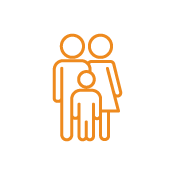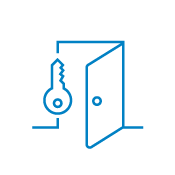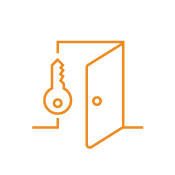5 safety tips for commercial kitchens you need to know about

A commercial kitchen can be an extraordinarily hazardous place to work and business to run. Know how to handle the inherent safety risks of a workplace that handles food and has open flame, dangerous equipment and tight spaces.
1. Fire safety
A fire can easily start in a commercial kitchen so you must make sure safety procedures are in place for preventing and putting out fires. Train staff to be attentive and follow safety precautions.
- Have fire extinguishers throughout your space and show staff how to use them.
- Have emergency lights and exit signs.
- Train staff about extinguishing grease fires. Water will not work; cover the flames with a lid and use a K-class fire extinguisher if necessary.
- Do not store flammable materials near kitchen appliances.
- Consider appliances with built-in fire suppression systems.
- Know how to turn off gas and electrical power sources.
- Know how to activate the wet chemical fire suppression system.
- Have an emergency evacuation plan and post it in a visible location.
- Have fire drills.
2. Food safety
Keeping your commercial kitchen safe is essential not only for your staff but for your customers. Make sure your staff are trained to uphold the highest standards of cleanliness and food safety.
- Wash fruits and vegetables.
- Prevent cross-contamination when storing food. Never store raw meat above vegetables.
- Use separate cutting boards for raw meat, seafood, and produce to avoid cross-contamination.
- Make sure staff are trained to cook meat to the proper temperature.
- Label and date food when it is stored and rotate it so the oldest food is used first.
- Clean and sanitize surfaces and equipment.
3. Preventing common injuries
Proper training and safety procedures can help your staff avoid common kitchen injuries.
Burns
Burns can be avoided by attentiveness and safe practices like using oven mitts, not leaving pot handles sticking out or over a burner, staying a safe distance from hot oil and not leaving hot oil unattended.
Cuts
Keep knives sharp, use cutting boards, keep cutting boards from slipping by placing a cloth underneath and store knives safely.
Strains and sprains
Repetitive lifting, bending, and twisting can cause injury. Keep items that are used frequently in easy to reach places and train staff about proper lifting techniques.
Eye injuries
Eye injuries can happen during cooking and cleaning when eyes are at risk of being splashed with hot oil or chemicals. Employees should be cautious and use safety glasses when necessary.
Slips and falls
Spills should be cleaned up immediately and floors should never be wet. If they are, they should be marked with signs. Keep a documented log on the dates and times that the floors were cleaned. This can come in handy when defending any potential slip and fall claim.
4. Operating equipment safely
Train employees to operate kitchen equipment safely.
- Equipment must be used according to the manufacturer’s instructions for its intended purpose.
- Make sure appliances are professionally inspected and maintained. Don’t fix them yourselves.
- Check electrical cords for damage like frays and cracks and stop using appliances with damaged cords until the cords are replaced. Keep cords away from water.
- Ensure your team is following a mandatory cleaning schedule for commercial kitchens.
Poor maintenance and cleaning practices significantly increase the risk of a fire in a kitchen. Grease and oil build-up is inevitable in most commercial kitchens. However, these substances are highly flammable and should be removed/cleaned as soon as possible. Employees should regularly clean areas of the kitchen that are consistently exposed to grease to ensure they are grease-free. These areas often include walls, ranges, grills, fryers and hood filters.
5. Safety equipment
Employees should use safety equipment for some tasks to prevent injuries.
- Gloves should be worn when using chemicals.
- Safety glasses should be worn when there is a risk of eye injury.
- You should also consider having back support belts available for heavy lifting.
- Make sure there is a well-stocked first aid kit.







